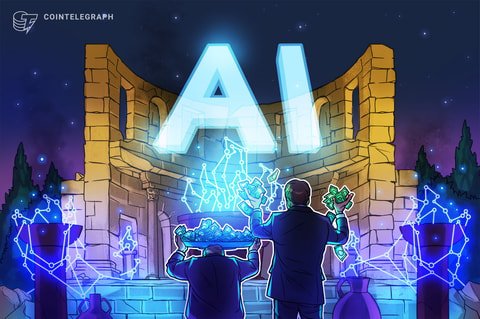
There's evidently little exploration of the extent of economic value artificial intelligence can bring about, and that's partly — at great length if I might add — because most commentators and reporters are out concerned about its weaponization and general misuse.
Weaponization is without a doubt, a valid concern for a technology of this scale. Nonetheless, a heavy focus on the potential negative outcomes limits the assessment of the value proposition associated with the technology reaching certain levels of advancement and adoption.
Artificial intelligence is, at the moment, viewed merely as “Chat-bots” answering a bunch of user queries. The problem with this growing perspective is that it completely misses out on realizing that this is a scaled solution enabling direct human access to a technology capable of automating a vast array of tasks.
Think about it every query you've ever punched into any of the popular models, now consider the interface to be an API access point and you, a third party platform. Now, each query is essentially a set of instructions and each answer is a feedback on completion of the tasks outlined in the instructions.
AI systems are effectively autonomous programs which are primarily gearing towards an age where everything is handled and processed through it. To make the tech worth applying, it has to be offering 10x(or more) cheaper solutions to each task it is designed to handle.
By this expectations, the general economic cost should drop by 10x. What economic growth would be experienced if cost of operation became 10x cheaper?
Incentivization Accelerates AI
A lot of people may find the concept of “decentralized AIs” and incentivization to be merely a hype-train with no substance and room for success but this is nothing more than the fault of the corrupted beliefs that centralized systems will always be better and essentially win.
The question we should be asking ourselves is: how can we say for sure that centralized AI is better than a decentralized solution when we've not tested it?
We tested decentralized money and today we have a trillion-dollar ecosystem in our hands to secure, what is stopping AI from being much bigger through integration of decentralization?
Incentivization will play a major role in how AI systems evolve, and they will drive massive value generation for economies of the world.
For context, when we focus on the internet-side of AI, As of February 2025, approximately 5.56 billion people worldwide use the internet, representing about 67.9% of the global population. On average, individuals spend around 6 hours and 36 minutes online each day.
The big idea here is that this scale of activities presents a unique opportunity for AI systems to constantly improve as it monitors the habits and evolution of humans through digital spaces. The problem? Well, the level of data generated daily by this many users requires a load of processes before AI systems can access and utilize them and this in itself would be expensive, from a centralized point.
People don't seem to get it, Big tech is big tech because it's built around “distributed mapping of data” — essentially leveraging decentralized concepts whilst running a centralized business.
Google for instance is powerful because of things like android software, Gmail, Google Search and the variety of free tools.
Primarily, it all starts with the Android software. It's the single most valuable source of mining data when users go about doing shits they do daily with their mobile devices.
Why then would we say “decentralizing” everything wouldn't work when that has literally been how Big tech builds dominance?
We will witness a host of platforms emerge offering individuals a way to turn every day use of the internet to a passive income stream as this will be an effective way to access “quality data” at minimal cost.
Think about it. Users send raw data to validator nodes, which clean it up into something structurally valuable which is then leveraged by AI models and varying institutions. The process ensures that these platforms cut down on spending on physical infrastructure as storage and data streams are provided by users and validators in exchange for rewards.
This is what being a web user will look like in the age of AI, where data is the driver of ecosystem growth and strengths.
Posted Using INLEO